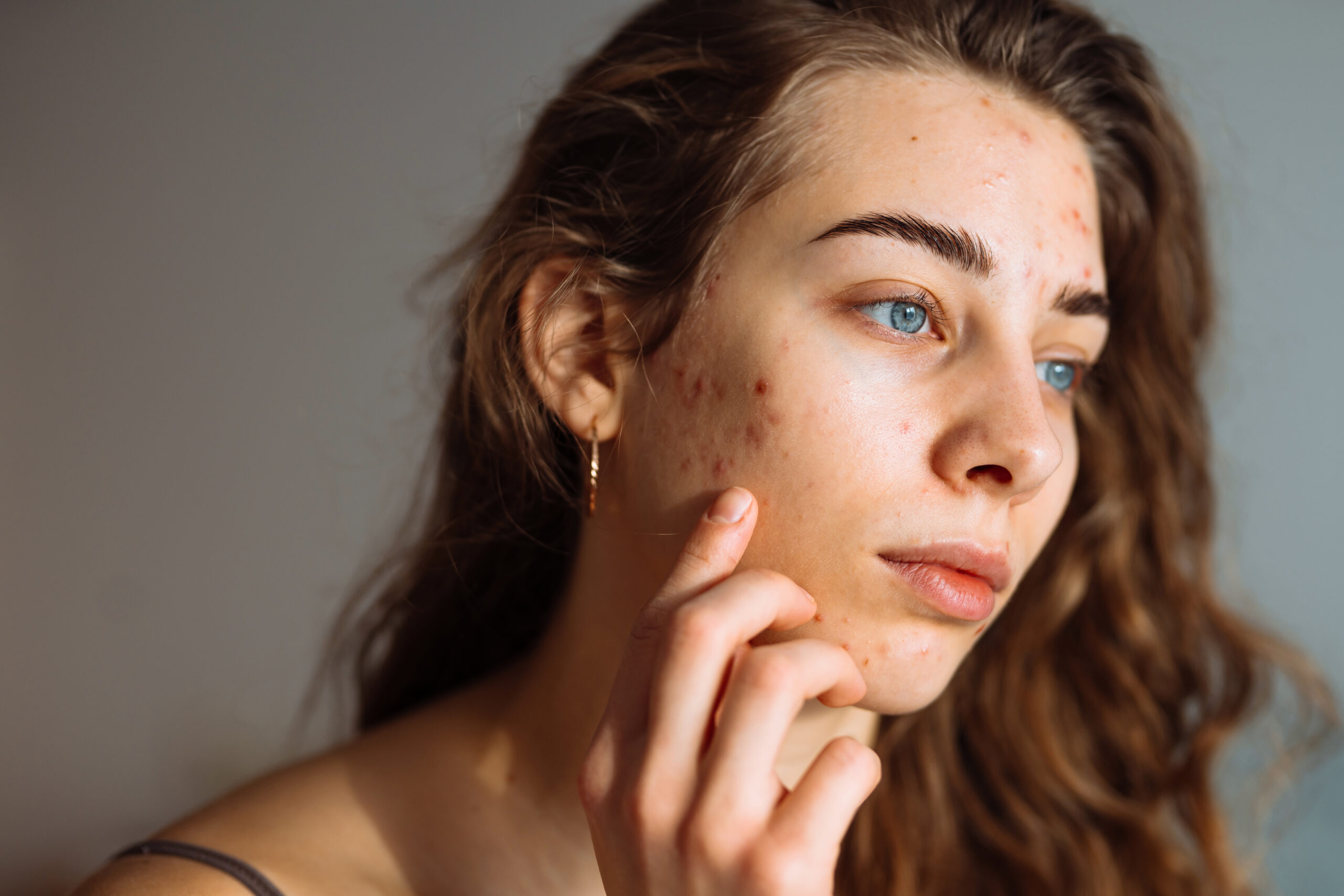
- POPSUGAR Australia
- Beauty
- Can Your Mental Wellbeing Affect Your Skin? Absolutely, Say These Experts
Can Your Mental Wellbeing Affect Your Skin? Absolutely, Say These Experts

Have you ever noticed when you’re feeling anxious or low it’s like your skin knows and it feels it too? Or maybe when you have a big event coming up and the day before you suddenly experience an acne break out or rosacea flare-up? It is quite well known that our mental wellbeing can impact our physical health, causing gut issues, migraines and other health-related concerns, however it is now beginning to be understood by organisations like The British Skin Foundation that it can impact out skin too. The evidence from various studies, including the Mental Health and Skin Disease Report (2020) has found that if we are stressed or under emotional pressure our skin can react too. It’s not just a case of bad luck, it’s actually very much connected. This mind/skin connection is known as psychodermatology.
“Psychodermatology is a medical practice that combines mind, body and skin,” says Abi Oleck, Founder of Beau Skin London. “It is a specialist area within Dermatology. Our emotional wellbeing, physical body and mental health are linked together,” Oleck tells PS UK.
But, what does it mean for tackling skin concerns and what can we do about it? I spoke to a number of leading skin experts to find out.
What Is Psychodermatology?
“Psychodermatology is about how our emotions affect our skin and vice versa,” says Dr. Gina Schoeman, aesthetic doctor at Creo Clinic. “It looks at how stress, anxiety, and other feelings can make skin conditions worse and how skin issues can impact our mental health. By blending dermatology, psychiatry, and psychology, it offers holistic care that considers both skin health’s physical and emotional sides,” she tells PS UK.
This holistic approach has enabled specialists to understand the cause and effect of certain skin conditions making treatment far more effective. “Psychodermatology aims to address these interconnected issues by treating the skin condition and the underlying psychological factors by promoting better overall health and quality of life,” says Dr Schoeman.
Which Skin Concerns Can Be Affected by Psychodermatology?
Skin concerns affected by psychodermatology include acne, eczema, psoriasis, hives, rosacea, and even hair loss. “Stress, anxiety, depression, and other emotional factors can exacerbate these conditions or even trigger flare-ups,” explains Dr Schoeman. “Likewise, these skin issues can impact an individual’s self-esteem, mood, and overall mental well-being,” she adds.
However, it can also have an impact on some serious conditions too. “There are many psychiatric disorders that can also occur such as; alopecia areata, ichthyosis, neurotic excoriations and factitial dermatitis,” explains Oleck
Why Is Skin Connected to Our Mental Wellbeing?
“Diagnosing Psychodermatology is like putting together puzzle pieces,” says Amanda Azzopardi, aesthetic nurse and founder of Amanda Azzopardi Aesthetics. “Medical experts gather your medical history, check your skin, and talk about how you’re feeling. It’s a team effort between skin experts and mental health professionals to figure out what’s going on and how to help.”
Related:
- Puffy Eyes? Dark Circles? Our Beauty Editor Recommends the New Eye Products For You
- Everything You Need to Know About Rosacea, From Triggers to Treatments
- Got Rosacea and Need a Skin Care Routine? We Asked the Experts
When we are in a state of stress or anxiety it affects our hormones, in particular our cortisol levels. “Raised cortisol levels affect sex hormones, inflammation, gut microbiome and insulin resistance,” explains Oleck. As with hormonal breakouts, which can affect our skin, this increase in stress levels has a similar effect or exacerbates certain conditions. It can also cause inflammation, which is the body’s response to irritation, which can present itself in various ways.
What Should You Do If You Think You’re Suffering From Psychodermatology?
“Supporting someone with Psychodermatology involves listening without judgment, encouraging professional help, promoting healthy coping strategies, and being there for them every step of the way,” says Azzopardi. “Offer to accompany them to appointments or assist with tasks that may feel overwhelming. Most importantly, remind them that they’re not alone and that you’re there to support them every step of the way,” she adds.
It must be noted that this isn’t something for doctor google. “Diagnosing the connection between psychiatric and dermatological disorders is a specialist and complex subject,” says Oleck. “It must be dealt with by a qualified medical professional in this field.”
If you are concerned contact your GP or visit NHS Direct for further information.
Lauren Ezekiel is an associate editor at PS UK, where she writes about all things beauty and wellness. With a degree in journalism and 12 years’ experience as a beauty editor at a leading Sunday supplement, she is obsessed with skincare, hair and makeup, and is often found offering advice to innocent bystanders. Her work has been published in Grazia, OK, Health and Beauty, The Sun, ASDA, Dare and Metro.

